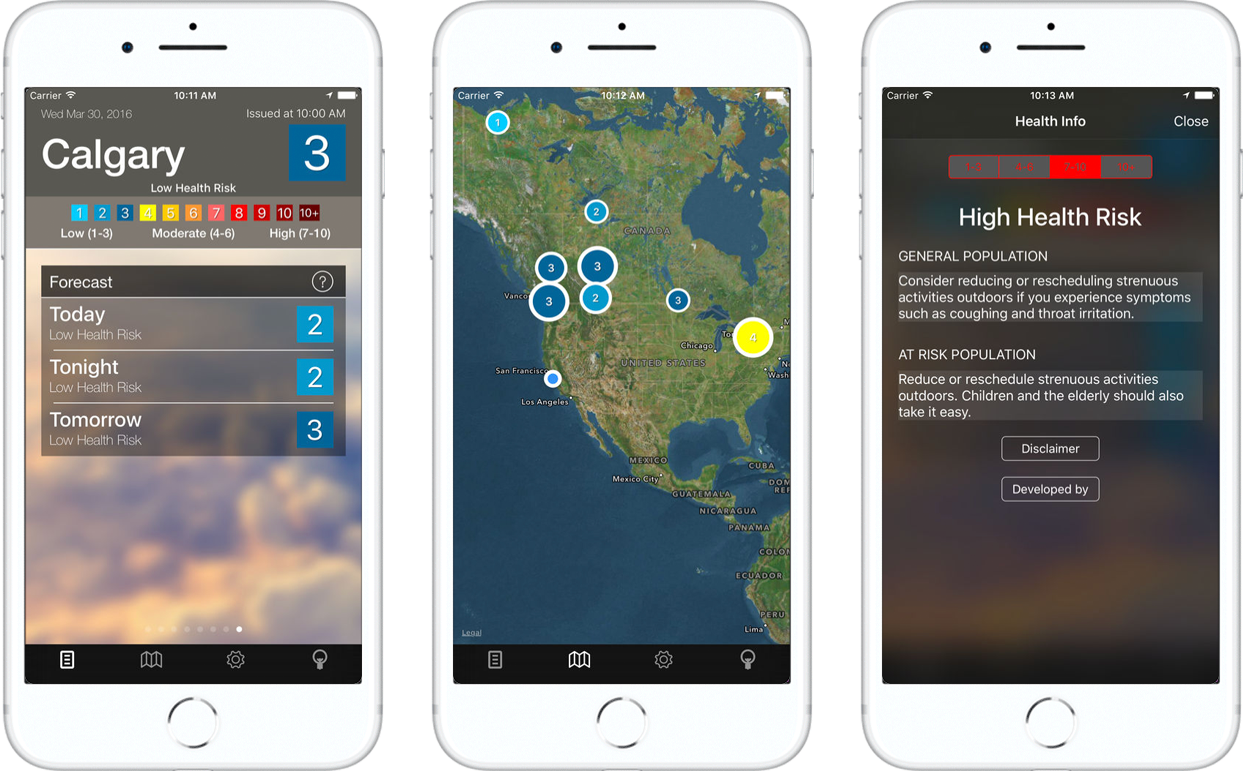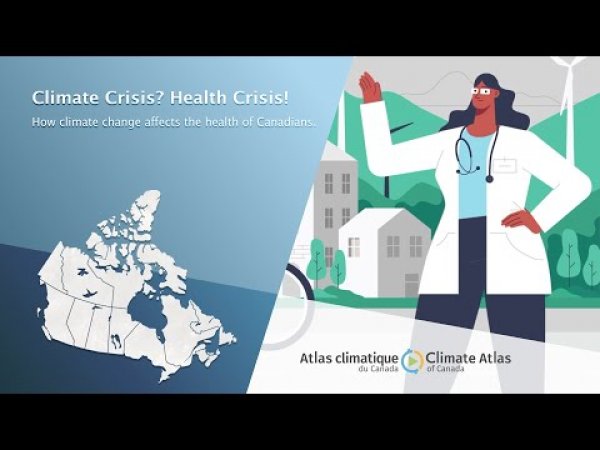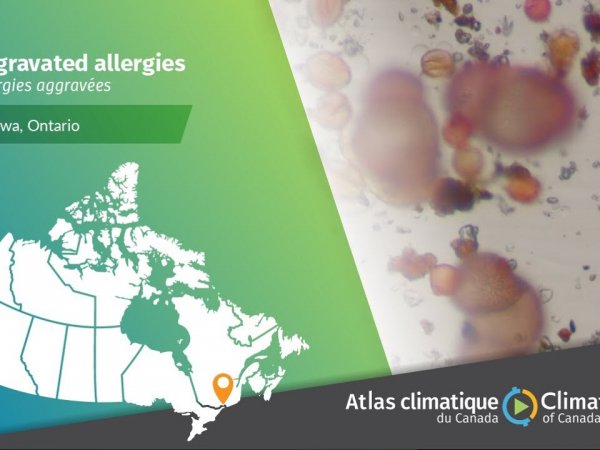![]()
Read about
Climate Change and Air Quality
More smog, more coughing - but we can reduce emissions and pollution
Canada has some of the best air quality in the world. But many Canadians in urban centres are finding it difficult to breathe easy these days. Medical research has shown that our changing climate is leading to worsening air quality, which affects our health.
Climate change contributes to a decline in air quality in three crucial ways: increased pollution, spikes in poor air quality during extreme heat events, and wildfire smoke and other environmental emissions.
Across the globe, clinical and public health research has shown that air pollution is linked to disease, increased hospitalizations, and even premature death. Understanding the quality of our air on a daily basis helps us plan or alter our activities to ensure the safety of ourselves and our loved ones. And understanding the climate change connection shows that it’s more important than ever to cut fossil fuel emissions to reduce pollution and fight climate change.
Read about
Wildfire Smoke and Your Health
The future is smoky. Are you prepared?
Across Canada, citizens and governments are learning to deal with the “new normal” of more wildfires under climate change. More fires means that Canada will see more wildfire smoke. Have you ever stopped to think about what this means for your health?
Dense smoke from wildfires is a dangerous type of heavy air pollution. It can cause minor issues like stingy eyes and a cough, but also more serious problems such as shortness of breath, asthma, bronchitis, and chronic obstructive pulmonary disease (lung damage).
If you know about the risks, you can avoid exposure to smoke and know when to seek help. And we all need to rise to the real challenge of reducing the threat of wildfire in the first place. We can take action by reducing fossil fuel emissions to fight climate change and better managing our forests to lower wildfire risks.
Read about
Wildfires, Water, and Our Health
Wildfires are becoming increasingly frequent and intense in Canadian summers.
In 2018, British Columbia saw its worst fire season in history, burning 1.3 million hectares of land. This was just two years after record-breaking fires devastated the city of Fort McMurray in Alberta, costing $9 billion in losses. With this increase in wildfires caused by climate change, we’re seeing more and more health impacts to Canadians.
Wildfires directly and indirectly impact human health. Wildfire smoke exposure is a big factor in increased health issues during fire seasons. Smoke travels easily, so those who don’t live in fire prone areas can also experience health problems. Our Wildfire Smoke and Climate Change article goes more in depth on the respiratory and other health risks of wildfire smoke.
Video
Aggravated Allergies
Predicting pollen levels in a changing climate
Anyone who has experienced seasonal allergies knows the suffering that comes with itchy eyes and blocked sinuses. Looking to the future, this discomfort may get worse, as Canadians are expected to face new allergens and higher levels. Climate change is bringing longer growing seasons, which means more pollen in the air. In this video, experts from Aerobiology Research Laboratories explain the increase in pollen they have seen in recent years, and how they are monitoring pollen levels to help Canadians respond and adapt.
App
Air Quality Health Index
Find out if there are any air quality warnings in your neighbourhood
Use the new AQHI Canada App to stay informed about outdoor air quality, plan your outdoor activities and receive alerts to find the best time to be active outdoors. Using this tool can help you protect your health by limiting exposure and adjusting outdoor activity levels during increased levels of air pollution.














.png)


